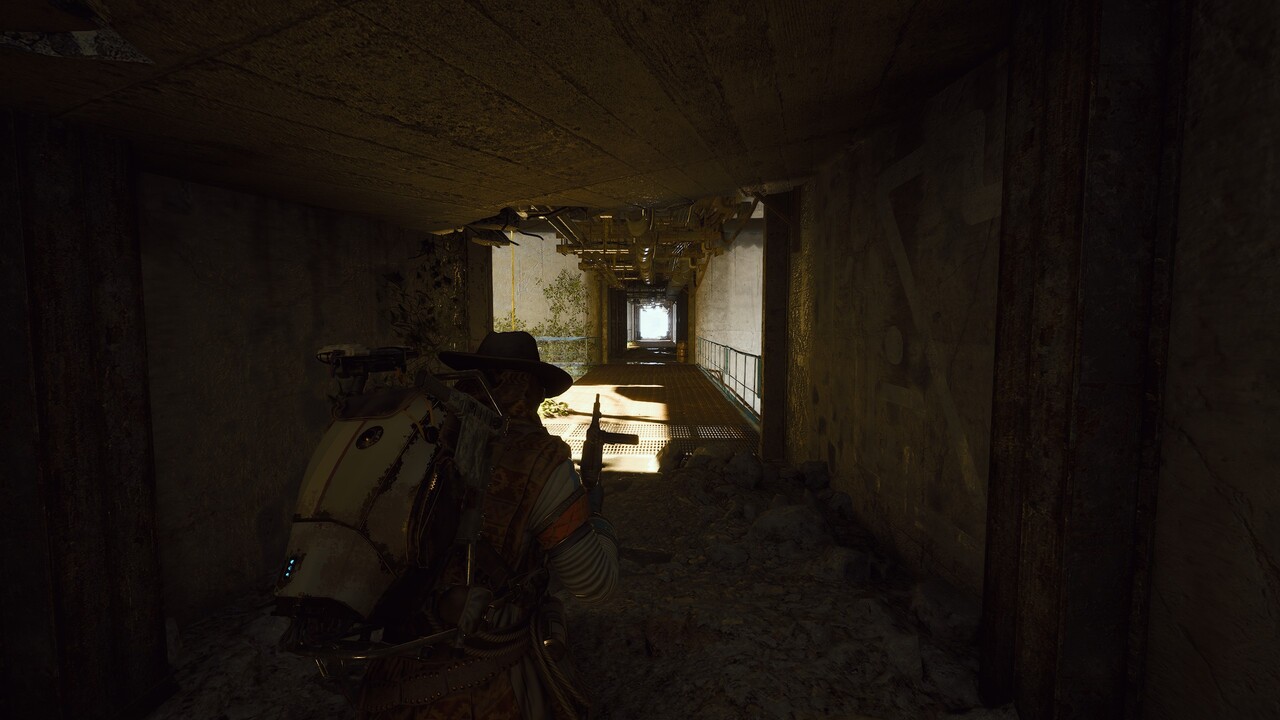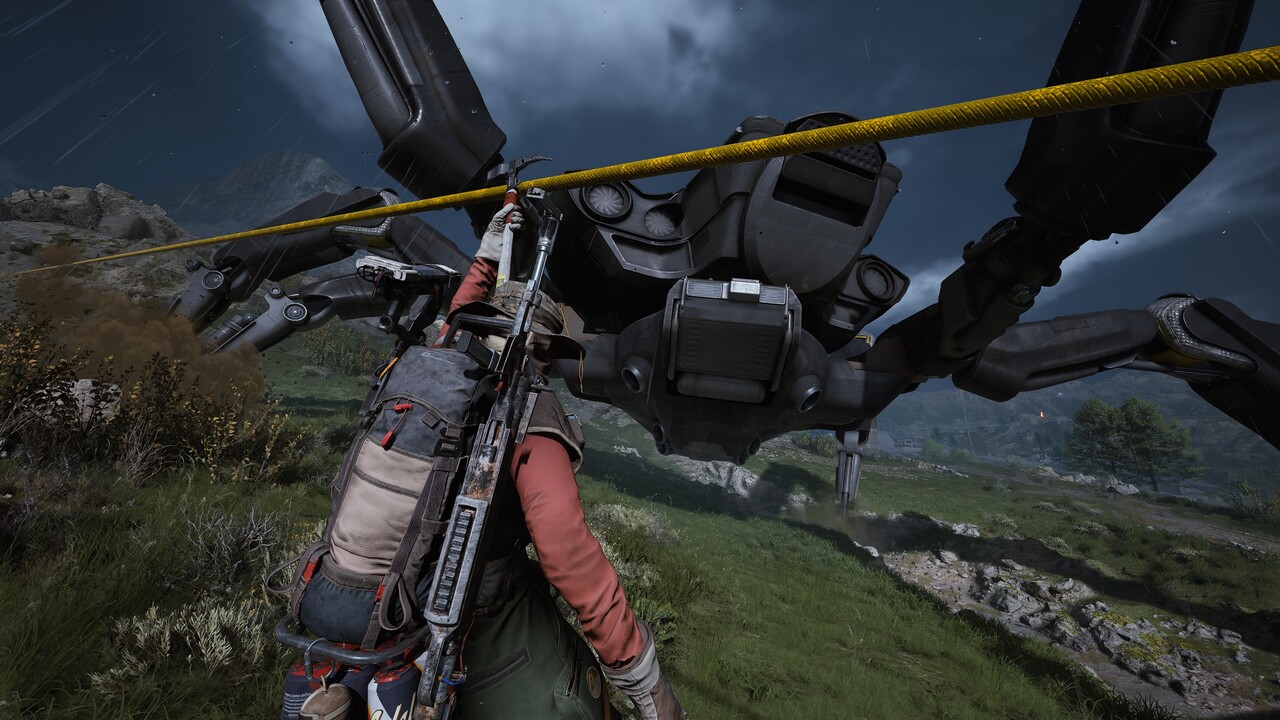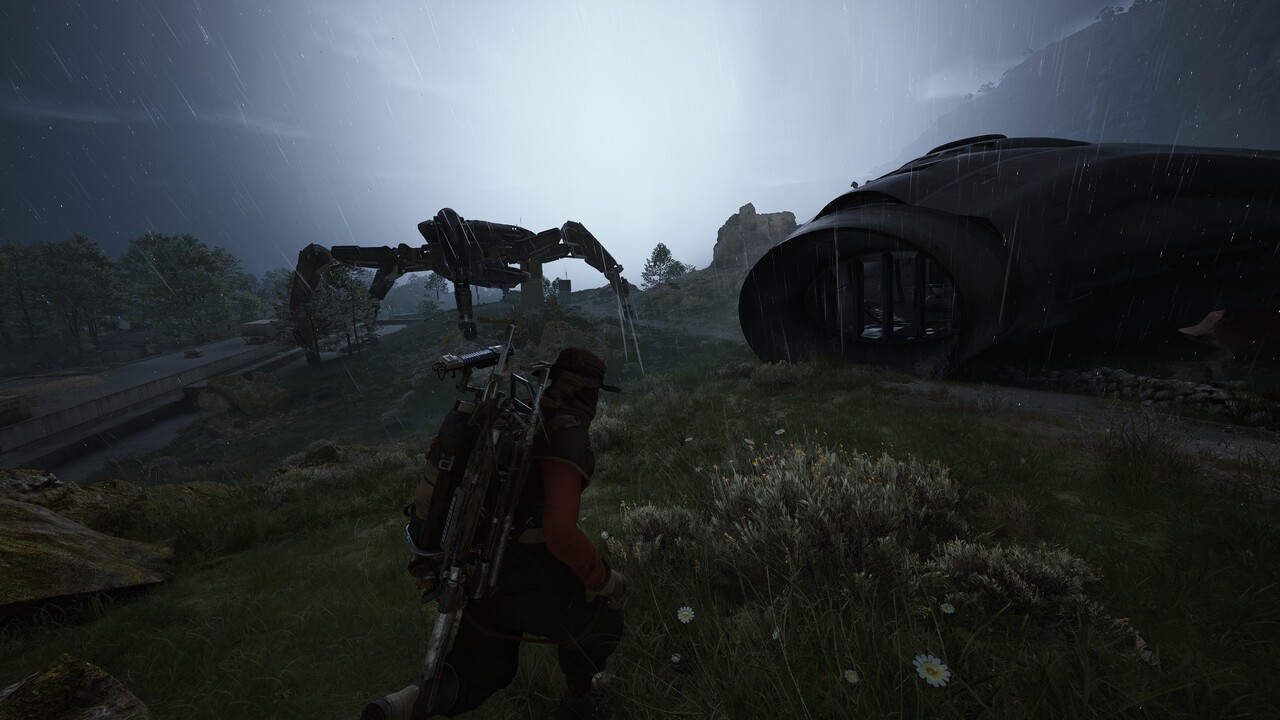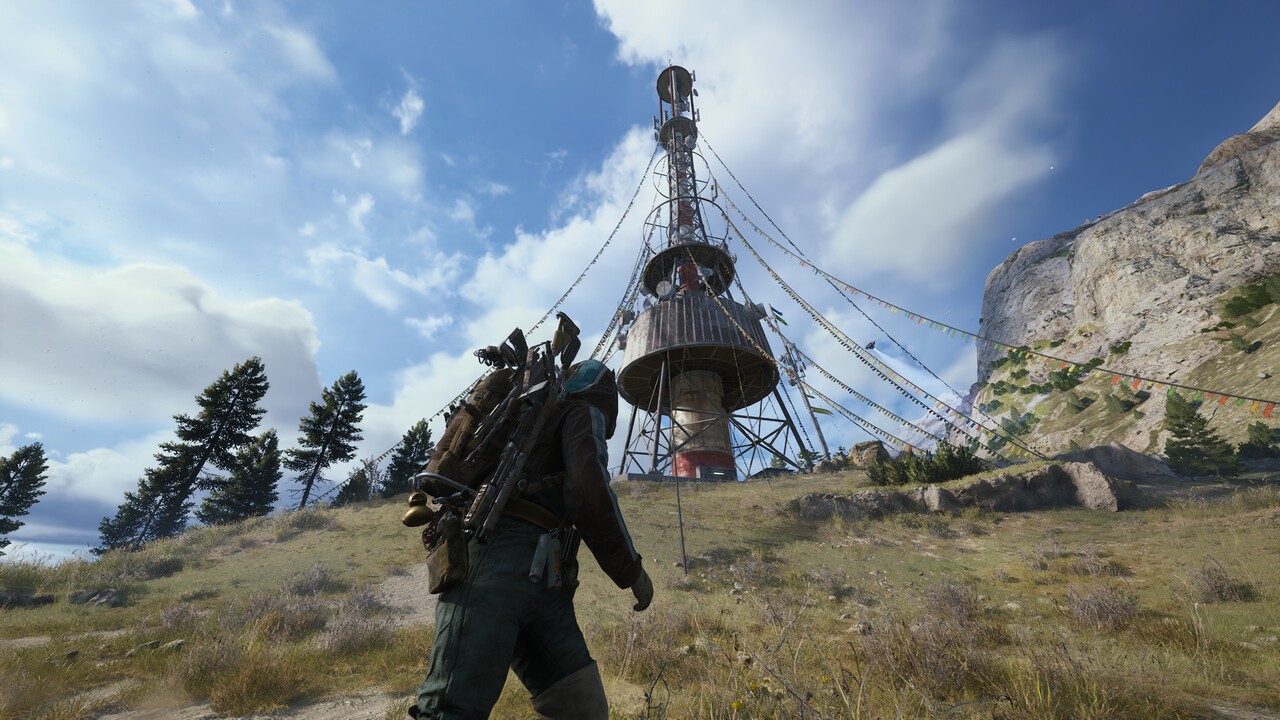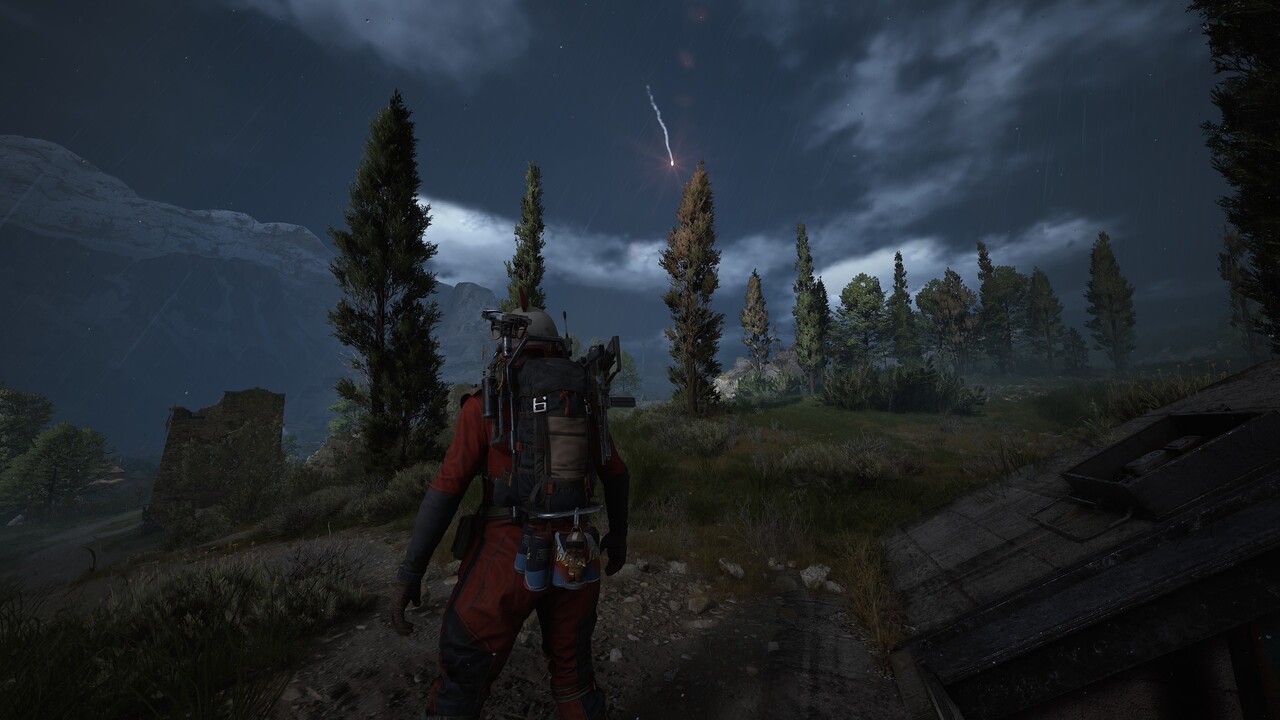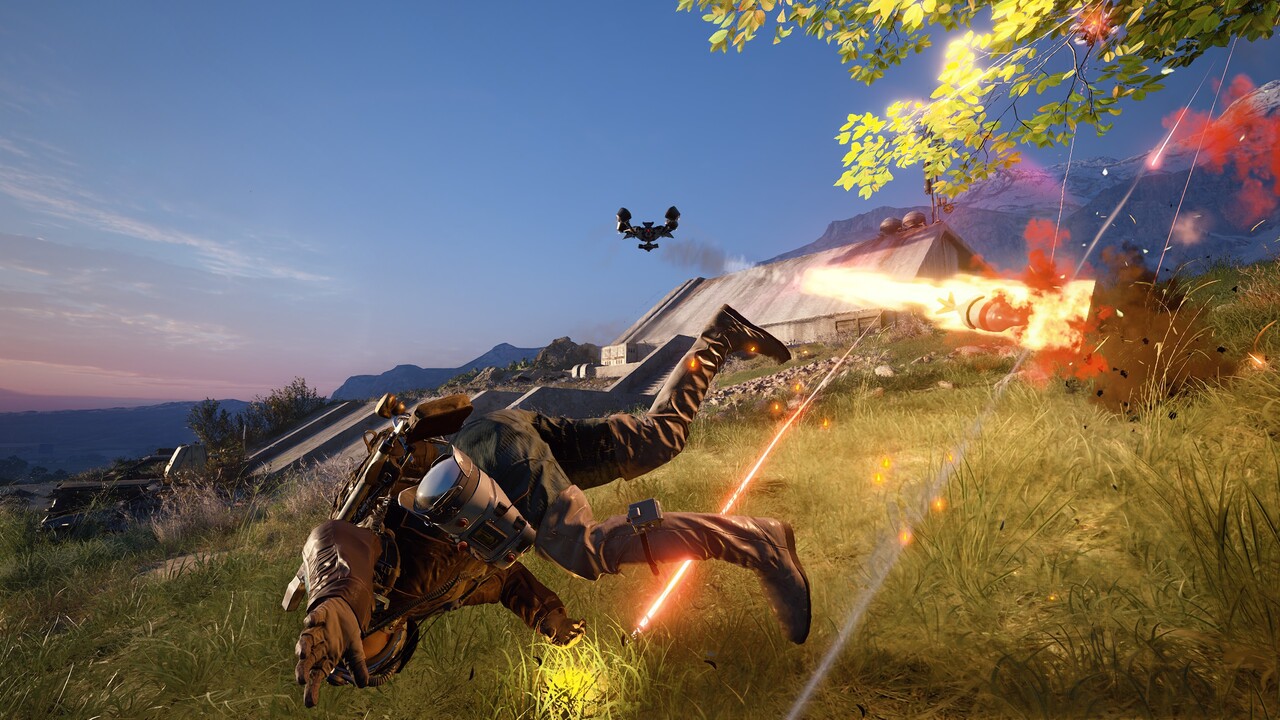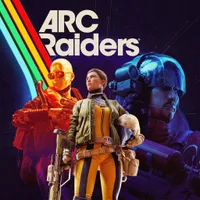ARC Raiders uses generative AI for voice lines trained on its paid actors — so what? Let's talk about where we draw the line.
Embark Studios created their voice lines through AI assistance, fueled by real humans. How do we separate machine learning from slop and define what's right or wrong?
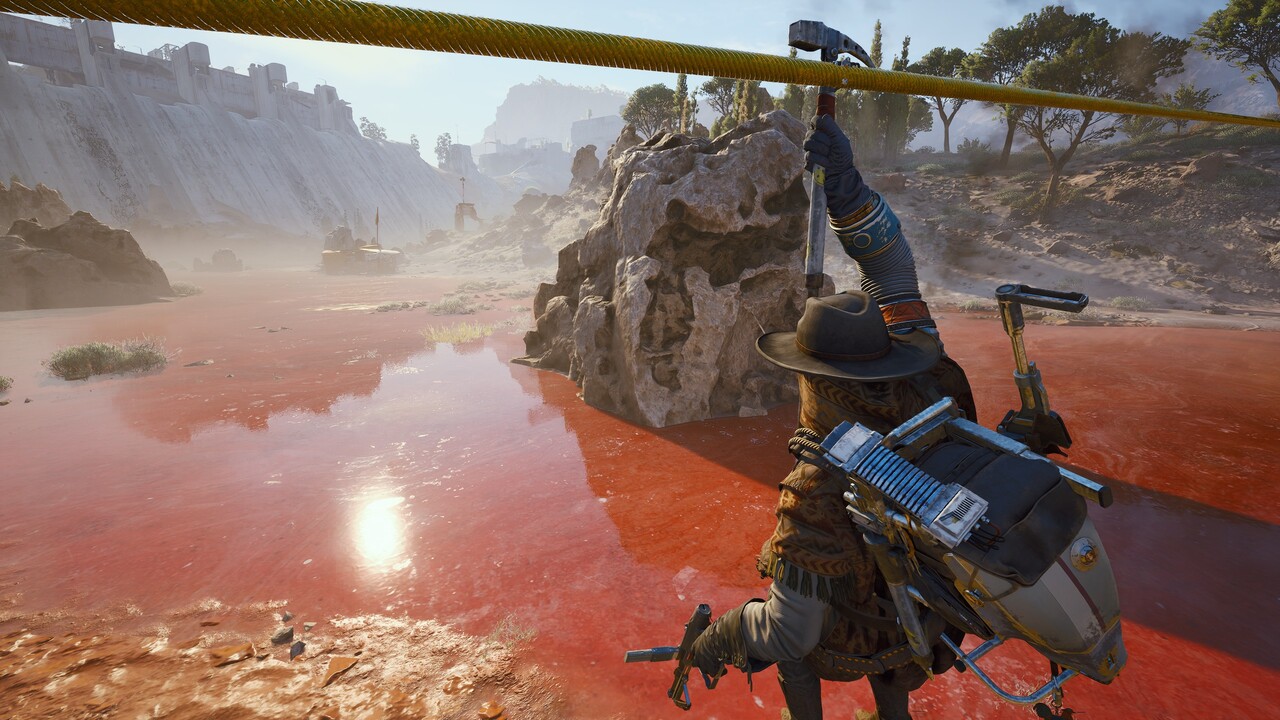
All the latest news, reviews, and guides for Windows and Xbox diehards.
You are now subscribed
Your newsletter sign-up was successful
AI has become the world's word, driving sales, infrastructure, device creation, and even video games. In the world of cost-cutting measures, AI has become a tool many use to save not just a buck, but also time and energy, in a world where everyone, all at once, needs everything now.
Is AI the next boogeyman, or is it something else? Will it "doom" us all to an existence in which humanity's artistic talents lie dormant, locked behind a wall of ever-growing, power-hungry server structures? Or is it the next step in human evolution, not one created by selection or generations, but one made by human intervention?
Where it lies on that less-than-linear scale is not a simple conversation to have, nor one that I'll even have scratched the surface of once you've finished reading this piece. What I am here to do is begin a dialogue, one that people can evolve from over time, and take points forward.
I want people to correct me. I want people to entice me to look even deeper into the depths of what AI is and its implications on humanity. But most importantly, I want people to stop saying "This is good" or "This is bad" without any actual exchange. First, let's talk about what's brought this entire piece together, ARC Raiders. The current big hit of the month.
What makes generative AI so bad?

Most of you probably already know, but AI can replace many artistic creators with results that many people call "slop", myself included. Generative AI makes use of other people's creations for general rules to build other creations. Basically, it recycles other work to generate something "new", but really, it's all interpretations of training material.
In the case of video games, this can lead to a long list of features developers can deliver without hiring extra talent or speeding up the development process. Such as, but not limited to: textures, animations, voice lines, and written code.
Sounds fairly clear-cut, but like all things, there's a little more to the story than what's on the surface.
All the latest news, reviews, and guides for Windows and Xbox diehards.
ARC Raiders and its use of AI
As stated on the Steam page for ARC Raiders, Embark Studios makes use of AI tooling in its creation of both ARC and The Finals:
During the development process, we may use procedural and AI-based tools to assist with content creation. In all such cases, the final product reflects the creativity and expression of our own development team.
Better yet, over the last few months, Embark has given multiple interviews on its use of AI. On The Game Business show with Christopher Dring, featured Embark CEO Patrick Soderlund. In the interview, he explained their reasoning behind using AI tooling in fair detail.
When talking about needing to keep pace with the likes of studios like DICE and Activision, Patrick began speaking of entirely rewriting their methodology on how to develop games.
"What type of modifications and transformations do we need to go through in order to completely change the way that we approach this? So that's when we came into procedurally generated content. Using AI and machine learning to some extent in the content creation pipelines, to what types of tools we build to use, and realizing that a lot of these tools that we've been working with for so long stem from software that's 25 to 30 years old."
It wasn't just about holding up; it was about beating others in content creation. Keeping pace only gets you so far; in a world of top-end gaming developers, getting ahead of the pack is key.
"So, we may have to build some of these things that are the programswe're using today. We may have to write our own in order to get to where we want to. And you know, today I wouldn't say that we're 100 times faster than any other studio. That would be arrogant, of course. But I do believe that what we have done has created a way to build products and games and update them, that I don't think many others can compete with."
What does Embark Studios use for The Finals, and is it justified?
Here's a list of things Embark Studios uses AI for in ARC Raiders:
- Procedural Animation: They created a system to animate the robots in the game to better interact with the world around them as they move. You'll see this more creatively on enemies such as a Leaper or Queen.
- Text-to-Speech (TTS): This model first saw use in The Finals, where the game's narrator uses the method. It's a text-to-speech program that yields dialogue for the ping system, giving all items, areas, and dangers in the area a vocal callout. This work isn't "stolen" by any means; instead, it uses contracted voice actors that lend their voice to the system, which in turn can be used for any new items or quests that come out.
- Enemy AI: The in-game enemies are programmed using machine learning as well. True AI, as I'll call it, since the enemies learn as they work to kill other Raiders. Something all developers have worked to create over the years to give compelling combat to players from threats other than other players.
One final note: Embark Studios does not use any form of generative AI. They've stated this verbatim and have continued to promise as such going forward.
So, what's the big issue gamers have with this? Well, it's the voice acting.
During my ARC Raiders review, I didn't even comment on this because it's not something I really cared about. I did find some of the dialogue off, but I didn't even consider that the AI was at fault. I focused on the core gameplay elements when arriving at my conclusion.
Gamers are taking issue with the precedent this sets. If actors are willing to get paid up front for their work and never need to return to create more voice lines, doesn't this take work away from them or others in the industry? Well, that depends.
I don't have the contract details, but I have reached out to Embark Studios to comment on this subject. If these voice actors are paid for any voice line used in the game, even if they didn't need to record it, I think gamers around the world would rejoice over that news.
The very idea that actors could be undercutting other paid talent by taking these deals, which could be far less lucrative because of AI, is bothersome. Without the contract, though, I can only guess as to the details of it.
Not a replacement, but an augment for creativity
As another raider I teamed up with in-game put it, Embark is using AI as an augment for creativity, not to replace creativity fully. By their own metrics, they're not here to replace the human element with AI; instead, they look to enhance humanity's ability to create more efficient ways.
Humans, at their very core, have always sought this road. From the very beginning of our nature, we were hunter-gatherers. Over time, we learned to farm, freeing up resources to develop new technologies. Pottery was one of the very first things we made as a result of that freedom.
The problem with AI is that it threatens said creative outlets. As generative AI consumes the work of others, it replaces the need for new ideas to be born. Without the products of humans, AI has nothing to consume for its own work except itself.
When it came to pottery, humans produced these items purely by hand, sculpting pots without any tools or assistance. As we advanced, pottery wheels, needles, ribs, beveling tools, molds, and hundreds of other tools were created to bring truly creative works to life. In short, we improved our tooling to create the greatest forms we've ever seen.
Sure, large corporations exist that churn out an extensive volume of ceramics that completely outweight that of individual makers, but that doesn't mean AI is automatically the large corporation creating slop.
I posed the question on X: What is the difference between this and something like procedural generation?
Yes, I know there's a difference, but at a fundamental level, procedural generation creates landscapes and terrain without full human intervention. To tweak this generation and refine the final creation, a human environmental artist oversees the product.
If AI is used to alleviate some effort required to create voice lines or other forms of content, so long as the initial creation and final product are overseen in large part by a real human, is this really all that bad? I don't know the true answer to this, but it's time we had this chat.
As AI is here to stay for the foreseeable future, now is the time to begin discussions on its ethical use. Barring it entirely from service isn't a real option, and anyone who isn't wholly motivated emotionally can tell you that. Rather than shouting "no" at the top of our lungs for everything, it's time we started talking about how or where AI can be used.
Humans are, by definition, a species that is always looking to better itself. Ethical use of AI could lead to great things, so long as we don't use it to replace that creativity which defines us; rather, we harness it in ways that only enhance artistry.
Maybe I'm entirely wrong, and I'll be eating it in the comments or on social media from folks who feel entirely different than me. Then again, that's the point of this entire piece: I'm not here simply because the game is popular. To begin a discussion rather than scream from the rooftops that we're condemned to a life of slop.
Nothing hits quite like crawling your way to a hard-earned exfil after getting absolutely shredded in the raid before. It’s an emotional rollercoaster that’ll break your heart, then hand it back to you like an ex-girlfriend you can't quit. From your first boot-shaking sprint across the surface to the moment you start hunting other raiders for sport, every match will leave you wanting another. Hands down, ARC Raiders is my favorite PvP shooter in years.
👉See at: Loaded | Xbox

Follow Windows Central on Google News to keep our latest news, insights, and features at the top of your feeds!

Michael has been gaming since he was five when his mother first bought a Super Nintendo from Blockbuster. Having written for a now-defunct website in the past, he's joined Windows Central as a contributor to spreading his 30+ years of love for gaming with everyone he can. His favorites include Red Dead Redemption, all the way to the controversial Dark Souls 2.
You must confirm your public display name before commenting
Please logout and then login again, you will then be prompted to enter your display name.
